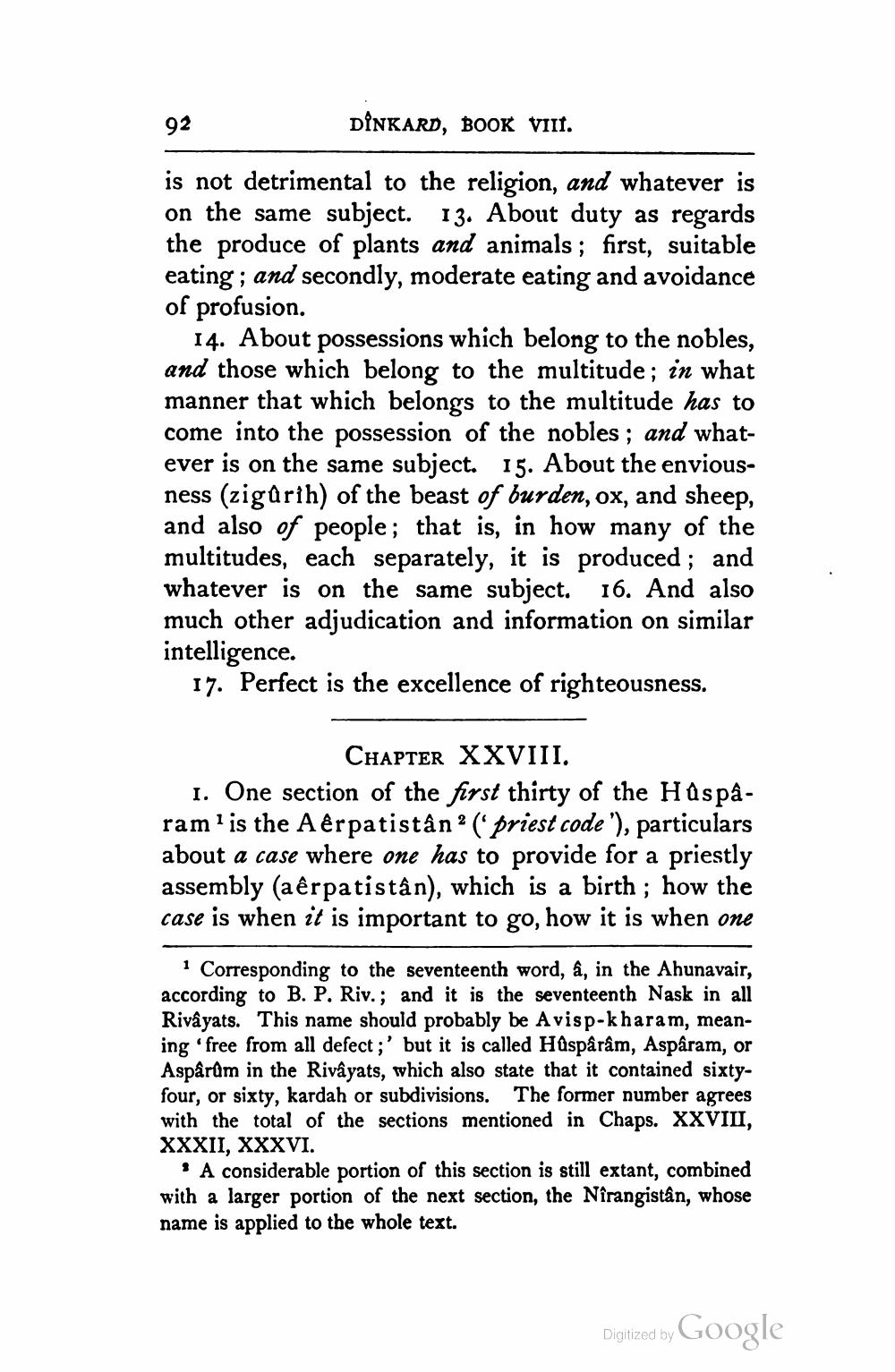________________
92
DİNKARD, BOOK VII.
is not detrimental to the religion, and whatever is on the same subject. 13. About duty as regards the produce of plants and animals; first, suitable eating; and secondly, moderate eating and avoidance of profusion.
14. About possessions which belong to the nobles, and those which belong to the multitude; in what manner that which belongs to the multitude has to come into the possession of the nobles; and whatever is on the same subject. 15. About the enviousness (zigarih) of the beast of burden, ox, and sheep, and also of people; that is, in how many of the multitudes, each separately, it is produced ; and whatever is on the same subject. 16. And also much other adjudication and information on similar intelligence.
17. Perfect is the excellence of righteousness.
CHAPTER XXVIII. 1. One section of the first thirty of the Husparam'is the A êrpatistân? (priest code'), particulars about a case where one has to provide for a priestly assembly (a êrpatistân), which is a birth; how the case is when it is important to go, how it is when one
1 Corresponding to the seventeenth word, â, in the Ahunavair, according to B. P. Riv.; and it is the seventeenth Nask in all Rivayats. This name should probably be A visp-kharam, meaning 'free from all defect;' but it is called Hüspârâm, Aspâram, or Asparum in the Rivâyats, which also state that it contained sixtyfour, or sixty, kardah or subdivisions. The former number agrees with the total of the sections mentioned in Chaps. XXVIII, XXXII, XXXVI.
"A considerable portion of this section is still extant, combined with a larger portion of the next section, the Nîrangistân, whose name is applied to the whole text.
Digitized by Google




